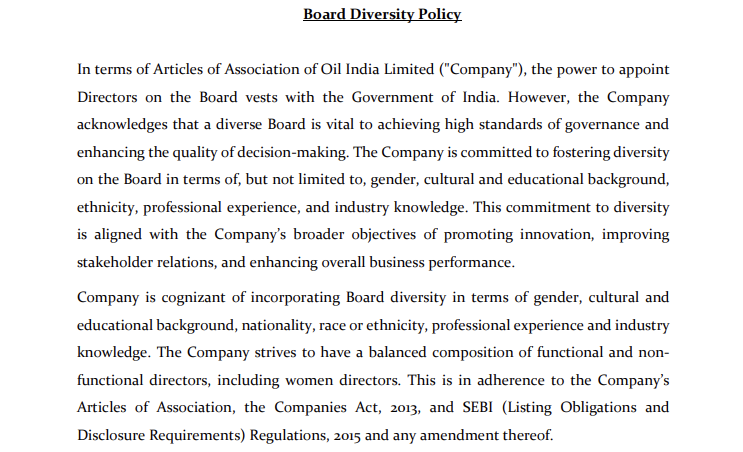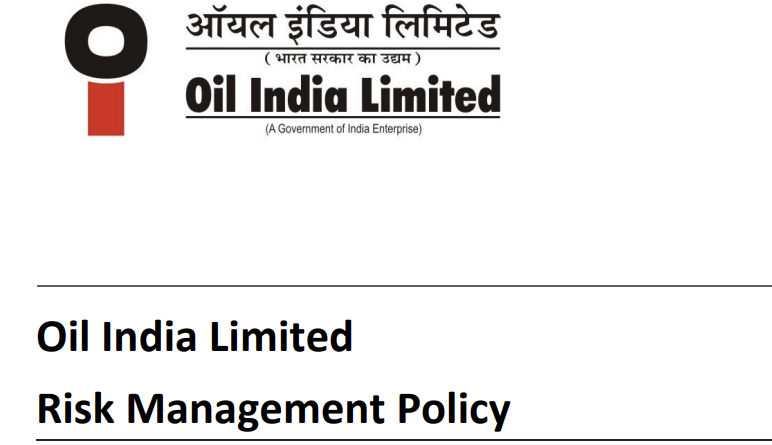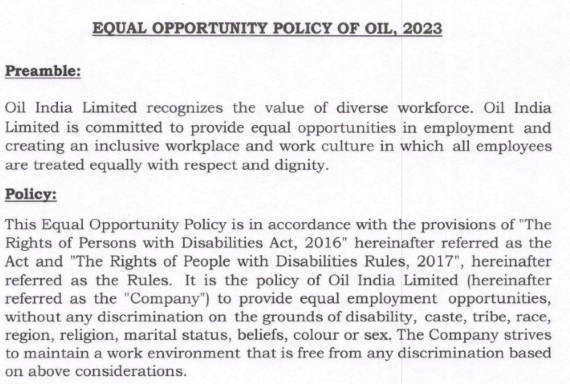Corporate Governance & ethics
Ensuring regulatory compliance, ethical business conduct, anti-corruption measures, and transparent decision-making.
ESG & SD Governance Structure
Strengthening sustainability leadership to drive organization’s ESG agenda
Corporate Governance & ethics
Oil India Limited (OIL) upholds the highest standards of corporate governance and ethical conduct, fostering transparency, accountability, and integrity across all levels of the organization. The company is committed to fair decision-making, responsible leadership, and sustainable business practices, ensuring that its operations align with the interests of stakeholders, employees, and the community. By fostering a culture of ethical responsibility, open communication, and trust, OIL promotes an environment where honesty, fairness, and corporate responsibility guide every action. The company continuously strengthens its governance framework, risk management, and ethical leadership, ensuring that its growth remains responsible, sustainable, and aligned with global best practices.
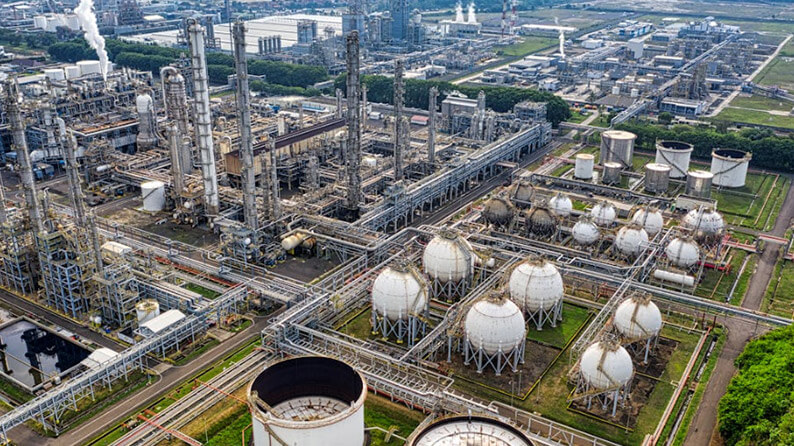
Risk and Crisis Management
The company has a comprehensive Risk and Crisis Management framework to ensure business continuity, operational resilience, and proactive risk mitigation. The company integrates Enterprise Risk Management (ERM) across operations, identifying key risks such as operational hazards, cybersecurity threats, and climate change impacts. A dedicated Risk Management Committee oversees risk governance, while scenario-based assessments help anticipate regulatory and environmental challenges. OIL follows a structured emergency response plan, including disaster preparedness, oil spill contingency planning, and cybersecurity measures.
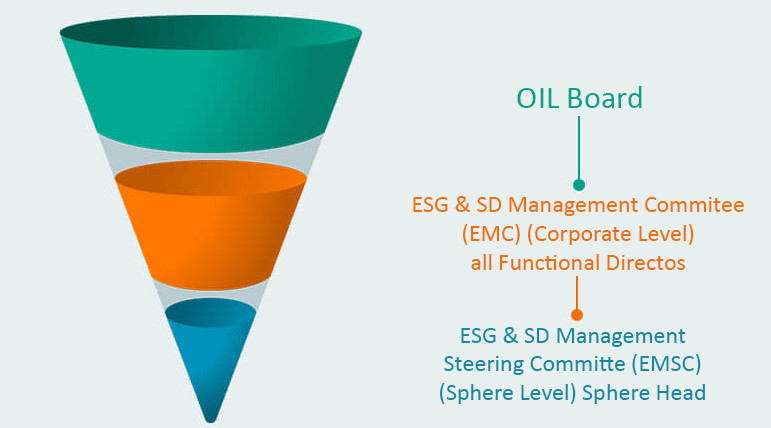
ESG & SD Governance structure
The ESG & Sustainable Development (SD) Committee plays a crucial role in overseeing, guiding, and implementing OIL’s sustainability initiatives. This committee evaluates ESG risks, opportunities, and compliance, ensuring alignment with global best practices and national sustainability goals. It is responsible for formulating policies, monitoring sustainability performance, and recommending initiatives that enhance OIL’s environmental stewardship, social impact, and corporate governance. The committee also reviews sustainability disclosures, stakeholder engagement strategies, and ESG integration into business decisions, reinforcing OIL’s commitment to net-zero emissions, biodiversity conservation, responsible resource management, and community development.

Cyber security
OIL prioritizes cybersecurity and IT security to protect its critical infrastructure, digital assets, and operational technology. With a three-tier cybersecurity governance structure, including oversight from the Board, CISO leadership, and an Information Security Working Group, OIL ensures robust security controls. The company follows ISO 27001 standards, conducts regular cybersecurity audits, vulnerability assessments, and penetration testing, and collaborates with CERT-In and NCIIPC for enhanced resilience. Additionally, incident response protocols, business continuity plans, and employee cybersecurity awareness programs strengthen defense against evolving cyber threats, ensuring secure and resilient digital operations.



